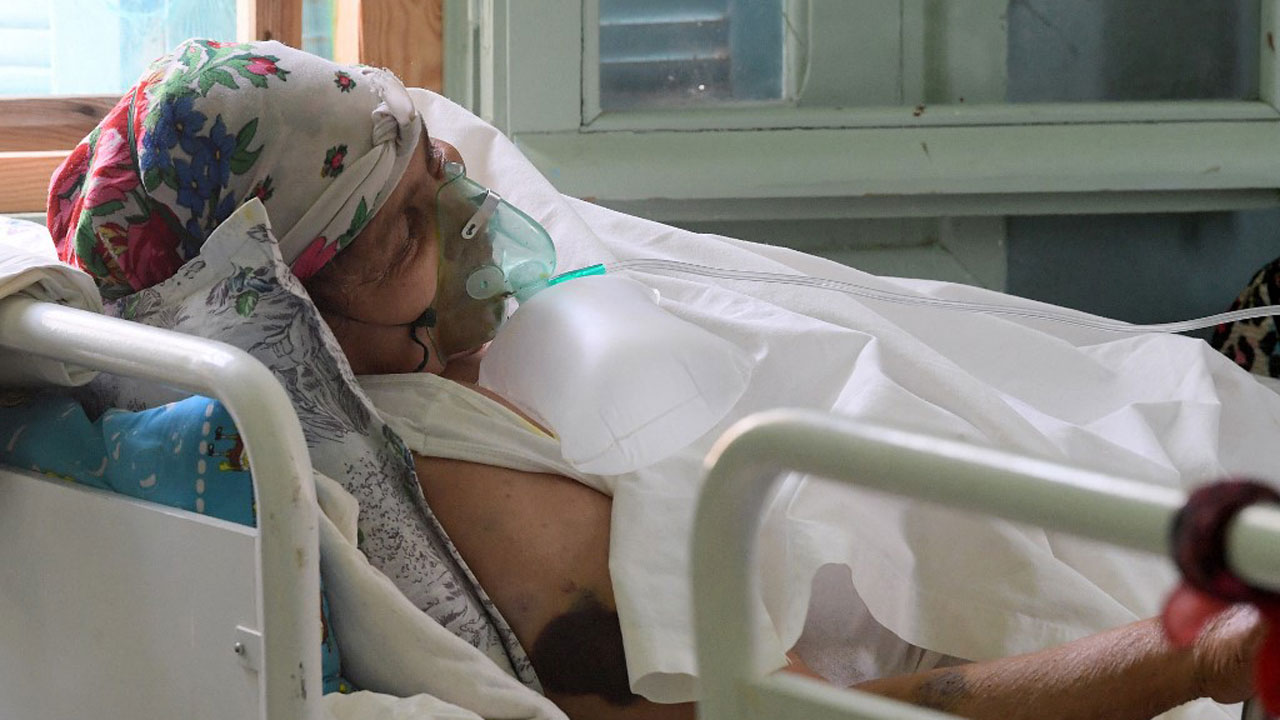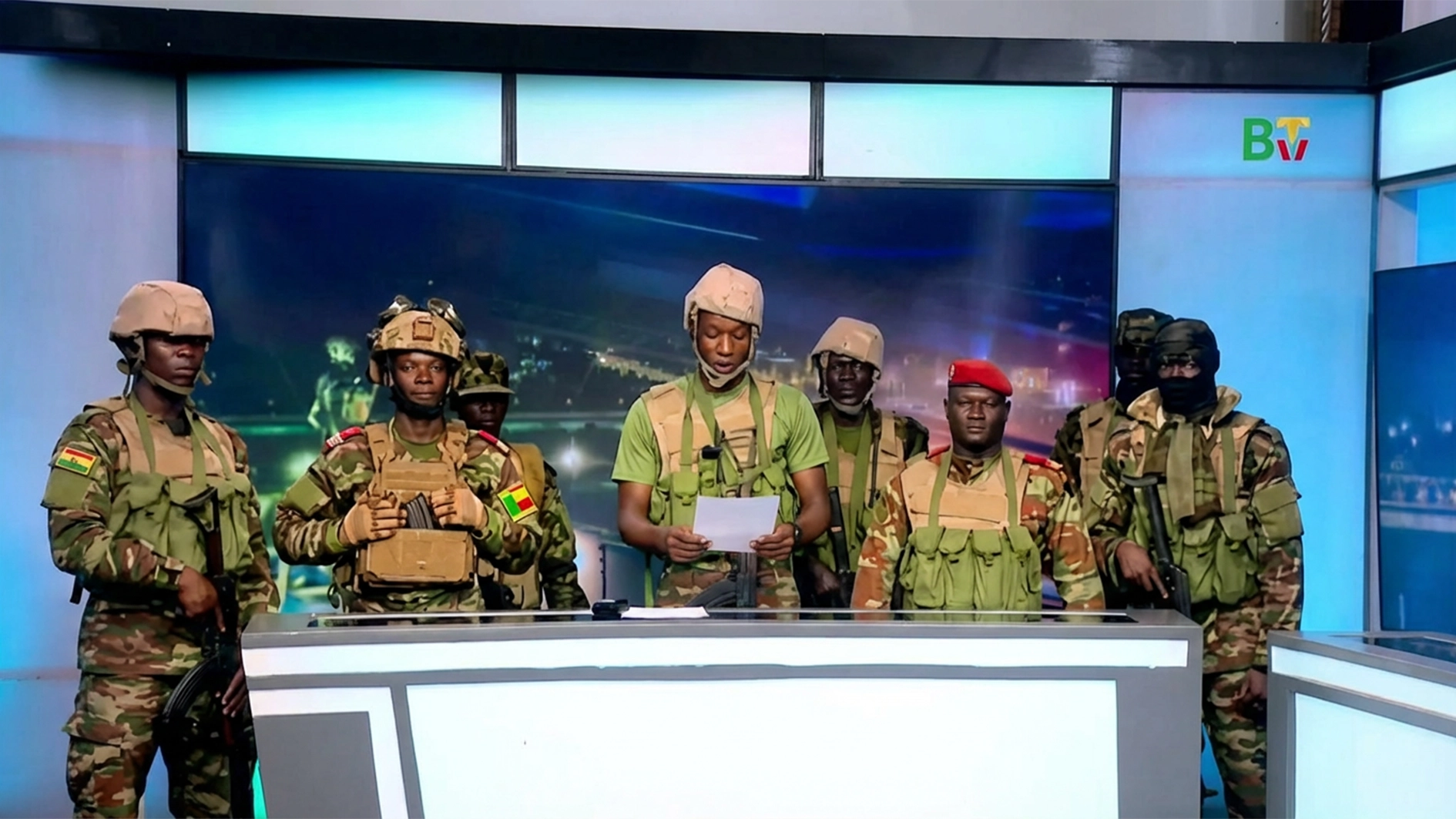
• Africa CDC: Continent not winning against ‘brutal’ pandemic
• FG: We have experienced great frustration regarding global vaccine supply
• Zambia, Uganda, DRC leading 20 African countries in middle of third wave
• Deadly Delta variant detected in most samples sequenced in 14 countries
• Nigeria, 30 others get U.S. 55m COVID-19 doses
The World Health Organisation (WHO), yesterday, warned that Africa is facing a fast-surging third wave of COVID-19 pandemic, with cases spreading more rapidly and projected to soon overtake the peak of the second wave the continent witnessed at the start of 2021.
WHO’s Regional Director for Africa, Dr. Matshidiso Moeti, during a virtual press conference, yesterday, facilitated by APO Group, said COVID-19 cases have risen for five consecutive weeks since the onset of the third wave on May 3, 2021. As of June 20, day 48 into the new wave, Africa had recorded around 474,000 new cases—a 21 per cent increase compared with the first 48 days of the second wave. At the current rate of infections, the ongoing surge is set to surpass the previous one by early July.
According to Moeti, “the pandemic is resurging in 12 African countries. A combination of factors including weak observance of public health measures, increased social interaction and movement as well as the spread of variants are powering the new surge. In the Democratic Republic of the Congo and Uganda that are experiencing COVID-19 resurgence, the Delta variant has been detected in most samples sequenced in the past month. Across Africa, the variant—first identified in India—has been reported in 14 countries.”
Also raising the alarm that Africa is not winning its fight against COVID-19 amid struggle to access enough vaccines for their populations is Africa Centres for Disease Control and Prevention (CDC) director, John Nkenkasong.
The COVAX programme co-led by the WHO for fair distribution of vaccines is now planning a shake-up as it has been shunned by rich countries and failing to meet the needs of the poorest. Nkenkasong said he was more worried about getting vaccines in time regardless of where the doses came from.
“The third wave has come with severity that most countries were not prepared for. So the third wave is extremely brutal,” Nenkasong said during a weekly online briefing yesterday.
“Let me put it bluntly, we are not winning in Africa this battle against the virus, so it does not really matter to me whether the vaccines are from COVAX or anywhere. All we need is rapid access to vaccines.”
Nkenkasong said at least 20 countries were in the middle of the third wave, with Zambia, Uganda and Democratic Republic of Congo among those whose health facilities were being overwhelmed.
The COVAX programme’s initial lofty ambitions to act as a clearing house for the world’s vaccines, collecting from the manufacturers in the most developed countries and quickly distributing to those with the most urgent need, have fallen flat.
About 1.12 per cent people have been fully vaccinated on a continent that has recorded 5.2 million infections, Nkenkasong said.
Continuing, Moeti said: “The third wave is picking up speed, spreading faster, hitting harder. With rapidly rising case numbers and increasing reports of serious illness, the latest surge threatens to be Africa’s worst yet.
Africa can still blunt the impact of these fast-rising infections, but the window of opportunity is closing. Everyone everywhere can do their bit by taking precautions to prevent transmission.”
WHO said it is deploying more experts to some of the worst affected countries, including Uganda and Zambia as well as supporting South Africa-based regional laboratories to monitor variants of concern. WHO is also boosting innovative technological support to other laboratories in the region without sequencing capacities to better monitor the evolution of the virus. In the next six months, WHO is aiming for an eight-to ten-fold increase in the samples sequenced each month in Southern African countries.
According to WHO, the COVID-19 upsurge comes as the vaccine supply crunch persists. Eighteen African countries have used over 80 per cent of their COVAX vaccine supplies, with eight having exhausted their stocks. Twenty-nine countries have administered over 50 per cent of their supplies. Despite the progress, just over one per cent of Africa’s population has been fully vaccinated. Globally, around 2.7 billion doses administered, of which just under 1.5 per cent have been administered in the continent.
Moeti said: “With high vaccination rates, it’s shaping up into a summer of freedom, family and fun for millions of people in richer countries. This is understandable and we all long for the same joys.
“Vaccine shortages are already prolonging the pain of COVID-19 in Africa. Let’s not add injury to injustice. Africans must not face more restrictions because they are unable to access vaccines that are only available elsewhere. I urge all regional and national regulatory agencies to recognize all the vaccines Emergency Use listed by WHO.”
In the European Union, a COVID-19 passport system for vaccination, testing and recovery will take effect from 1 July. However, only four of the eight vaccines listed by WHO for emergency use are recognised by the European Medicines Agency for the passport system.
THE Federal Government yesterday said it has experienced great frustration regarding the global vaccine supply. Government lamented that not only has there been huge challenges with respect to vaccine manufacturers producing enough doses for the world, but there also has been great inequity in terms of distribution.
Meanwhile, Nigeria has not recorded any fresh case of death directly linked to COVID-19 vaccination even as 2,099,568 people have been vaccinated with their first doses of Oxford Astrazeneca vaccine and 1,005,234 already received their second dose.
Executive Director of the National Primary Healthcare Development Agency (NPHCDA), Dr Faisal Shuaib, who disclosed this at the weekly COVID-19 vaccination update in Abuja expressed worries that most countries of the world have received few doses of vaccine and in some cases no vaccines, stressing that this is a problem that needs to be solved urgently.
Shuaib observed that so far after more than three million vaccinations, 13,267 people have experienced mild to moderate side effects, while 4,708 have experienced moderate to severe side effects. He disclosed that NPHCDA is working closely with the National Agency for Food and Drug Administration and Control (NAFDAC) on Adverse Event Following Immunization (AEFI) response.
He said: “There are also other pharmacovigilance measures in place to monitor and respond to AEFI cases throughout the country. Cases of mild, moderate and severe reactions that have been recorded are expected from normal vaccination, and people who experienced any of these have since recovered and are doing well. Therefore, we should not allow the fear of side effects to discourage us from taking the vaccine, as the long term benefits of getting vaccinated far outweigh the risk of brief side effects.”
He warned that full vaccination does not exempt people who have received their second doses of the vaccine from observing the infection prevention and control measures, as it is very important for everyone, including those who have received their second doses, to continue to wear facemasks and observe other non-pharmaceutical measures to prevent the spread of the virus.
Shuaib said that the agency is encouraged by the swell of contributions and pledges from major nations into COVAX, stressing that rich nations of the world are showing greatly increased recognition that there must be more supply and it must be distributed much more fairly, and they are becoming active in solving this.
MEANWHILE, the United States has allocated 55 million doses of COVID-19 vaccines to Nigeria and 30 other priority countries as part of plans to end the pandemic. The Joe Biden administration had earlier promised to distribute 80 million doses from the U.S. supply, with 25 million doses already allocated.
The allocation plan for the 55 million doses includes 41 million to be shared through COVAX, the global vaccine alliance; about 14 million of the vaccine doses will go to selected countries in Latin America and the Caribbean, 16 million in Asia, and 10 million in Africa.
Also 41 million doses will be shared to “regional priorities and other recipients” including Nigeria and about 30 other countries. Five of those are South Africa, Kenya, Ghana, Cape Verde and Egypt.
In a fact sheet released on Wednesday, the U.S. stated that its goals remain to “increase global COVID-19 vaccination coverage, prepare for surges and prioritise healthcare workers and other vulnerable populations.”
It stated: “And, as we have previously stated, the United States will not use its vaccines to secure favours from other countries. Sharing millions of U.S. vaccines with other countries signals a major commitment by the U.S. Government,” the fact sheet noted.
“Just like we have in our domestic response, we will move as expeditiously as possible, while abiding by U.S. and host country regulatory and legal requirements, to facilitate the safe and secure transport of vaccines across international borders.
About 2.7 billion shots of the coronavirus vaccines have so far been administered globally including in the U.S. where the vaccination rate is said to be 1.13 million doses per day.
But African countries — such as Nigeria, where just one per cent of the 200 million-plus population, has been vaccinated — have struggled to catch up with the vaccination process. Only 1.6 per cent of the 2.7 billion shots so far administered are in Africa.





